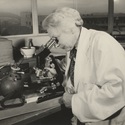In this recorded webinar Pauline Waiti and Rosemary Hipkins explore the idea of knowledge systems with examples from science and mātauranga Māori1.
The report Enduring Competencies for Designing Science Learning Pathways introduced the idea of exploring both science and mātauranga Māori as knowledge systems. Thinking about knowledge as a system is likely to be an unfamiliar idea for many teachers. In this webinar we unpack the metaphor, using familiar science concepts to show which of them might be appropriately explored through both knowledge lenses (i.e. science and mātauranga Māori) and when this might not be helpful.
This is an awesome and profoundly important and vital discussion – this discussion today has helped me heaps.
Teacher
The aim of the session is to show how our thinking habits and frameworks are influenced by our primary knowledge system, in ways that can be invisible to us. Having two knowledge systems to draw on is a taonga2 because it helps us become aware of differences in how we see the world that might otherwise remain hidden.
This was a perfect start to some critical thinking and reflection.
Participant
This session will be valuable for all educators.
You can download the video and slideshow presentation.
| Slideshow number(s) |
| 1–2 |
| 3 |
| 4–5 |
| 6 |
| 7–11 |
| 12 |
| 13–14 |
| 15 |
| 16 |
| 17 |
| 18 |
| 19–20 |
| 21 |
| 22 |
Related content
View the other webinars in this series:
- Part 1: Enduring competencies for designing science learning pathways.
- Part 3: Learning benefits of a knowledge systems approach to science.
- Part 4: Taking a knowledge systems approach in the classroom: Some dos and don’ts
Science Learning Hub resources mentioned in the webinar include:
The video He awa whiria – braided rivers shares the analogy3 of a braided river for the weaving of knowledge streams.
In the presentation on Agency in the Anthropocene, two of the four co-authors look at the competencies our young people will need for the future. This includes the ability to draw on multiple knowledge systems in order to make responsible decisions and take action for a sustainable4 future.
Useful links
The article Enduring competencies for designing science learning pathways by Rosemary Hipkins, Sara Tolbert, Bronwen Cowie and Pauline Waiti introduces the idea of exploring both science and mātauranga Māori as knowledge systems.
Knowledge systems are complex, learn more about complex systems in Rosemary Hikpins’ book Teaching for Complex Systems Thinking.
The initiative Mana ōrite mō te Mātauranga Māori supports equal status, support and resourcing for mātauranga Māori in NCEA.
References
Transforming knowledge systems for life on Earth: Visions of future systems and how to get there, Energy Research & Social Science, Volume 70, 2020, 101724, https://doi.org/10.1016/j.erss.2020.101724.
Kaitiakitanga: Utilising Māori Holistic Conservation in Heritage Institutions. Journal of Conservation and Museum Studies, 20(1), p.2. https://doi.org/10.5334/jcms.215.
A cultural framework for Indigenous, Local, and Science knowledge systems in ecology and natural resource management. Varghese J., Crawford S.S. Ecological Monographs, Volume 91, Issue 1, 2021. https://doi.org/10.1002/ecm.1431.
Acknowledgement
Thank you to Pauline Waiti and Rosemary Hipkins. Ngā mihi nui ki a kōrua.
- mātauranga Māori: A contemporary term referring to Māori knowledge, Māori ways of knowing and associated practice.
- taonga: Within the Māori world view, a taonga is a treasure that represents whakapapa in relation to a kin group’s estate and tribal resources. Amongst many things, a taonga can be a living creature, a landscape, an object or a song. Taonga are important to the mana (honour and prestige) of the iwi associated with them.
- analogy: A comparison between two things, usually using something that is easy to understand to explain something that is more complicated.
- sustainable: A way of using natural products so they are available for future generations.




